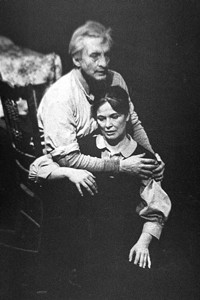1) female desire narrative


女性欲望叙事
2) desire narration


欲望叙事
1.
The era background and the features of desire narration in avant-garde novels reflected in Yu Hua s Brother Ⅱ are analyzed,using Featherstone s consumerism of cultural study.
运用文化研究中的费瑟斯通的消费主义理论,分析了余华小说《兄弟》(下)时代背景及所体现出的先锋小说欲望叙事的特点,论述了小说主人公在欲望追逐中的命运沉浮。
2.
The current literature fell into the circle of desire narration.


文学呈现出欲望叙事泛滥的颓败景观,成为了当下一个应该引起我们重视并亟待破解的文学现象。
3.
The desire narration concerning the essential factor of that reflects the evolution of the freedom ethic more deeply.
关注伦理核心要素的欲望叙事无疑更集中而深切地反映着自由伦理的演进历程。
3) Desirous narrative


欲望化叙事
1.
Desirous narrative has become the most powerful narrative rule of t.


欲望化叙事成为90年代以来小说文本的最强有力的叙事法则。
4) female desire


女性欲望
1.
In her novel Chang Hen Ge (The Song of Perennial Remorse), Wang Anyi has rationally examined female desire by relating a story of the disillusionment of a female, Wang Qi s desire, emotion and dream in a city.
王安忆站在历史的高度,从社会的角度,用文化的视野在《长恨歌》中对女性欲望问题进行了理性审视,通过王琦瑶写了一个女人的欲、情与梦想在都市幻灭的故事。
2.
Using the classical film narrative and examining the social, cultural and psychological contexts of women in aspects of male gaze, male fantasy, female desire, and female subjectivity, the .
本文将以女性主义电影理论—经典电影叙述为理论基础,通过分析小说中女性的社会环境、文化环境及心理状况,从男性视角、男性幻想、女性欲望及女性自主等方面着手分析这三篇小说中的女性形象。
5) history desire narration


历史欲望叙事
1.
This paper aims at revealing its nature,disadvantages and realistic effects by making a dialectical analysis of the history desire narration,feminism desire narration and violence desire narration of the new-period literature.
本文意在通过对新时期文学中的历史欲望叙事、女性(权)主义欲望叙事和暴力欲望叙事的辩证分析,揭示其内核、弊端和现实效应。
6) violence desire narration


暴力欲望叙事
1.
This paper aims at revealing its nature,disadvantages and realistic effects by making a dialectical analysis of the history desire narration,feminism desire narration and violence desire narration of the new-period literature.
本文意在通过对新时期文学中的历史欲望叙事、女性(权)主义欲望叙事和暴力欲望叙事的辩证分析,揭示其内核、弊端和现实效应。
补充资料:《榆树下的欲望》
| 《榆树下的欲望》 Desir Under theElms E.奥尼乐的剧作。3幕悲剧,1924年首演。写农场主卡伯特为了农场所有权同儿子埃本和妻子爱碧之间发生的三角纠纷。前妻所生的埃本对继承农场抱有希望,76岁高龄的父亲又娶了年轻美貌的爱碧做第三任妻子。爱碧嫁给行将就木的老头,就是为了这份遗产,但是她跟年迈的卡伯特生不出孩子,继承权眼看要落空,于是引诱埃本同她发生关系,并生下了儿子。在利用、引诱埃本的过程中,她对埃本产生了真正的爱情。而埃本一直认为爱碧对他并无感情,只是为了生个继承人夺取农场。爱碧百般表白也不能证明自己的真心,于是忍痛杀死了亲生婴儿。她与埃本的隔阂消除了,但等待着他们的却是法律的制裁。 发生在这个家庭中的悲剧向人们揭示出,在金钱占统治地位的社会里,人的自然的情感与本性是如何被压抑与扭曲的,对财产的欲望使父子、母子、夫妻与兄弟之间尔虞我诈,虎视眈眈,一个个贪婪、狡诈、邪恶、虚伪。作者也写了人性中美好的一面,当爱情的火花迸发而出,冲破对金钱的占有欲时,他们会变得真诚、善良,为了得到一份真情而奋不顾身地追求。但是这种追求所表现出的疯狂依然造成了毁灭,这正是悲剧性所在。
|
说明:补充资料仅用于学习参考,请勿用于其它任何用途。
参考词条
